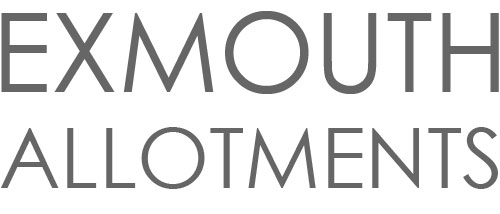Bonfires on Exmouth Allotments – 2022
The Committee had discussed bonfires for some time before making its decision at the meeting in mid-September. This was before the recent spate of Covid related restrictions by HMG. For the benefit of all, both fellow plot holders and our neighbours, please keep to the new rules the Committee has put in place. The Committee would prefer not to revert to a ban on bonfires but that decision will depend on decisions made by HMG, the Town Council and the actions of plot holders.
In a nutshell …
- Members will be allowed to have up to one bonfire per month from October to February inclusive.
- Bonfires are not allowed in March to September inclusive.
- Only small amounts of dry organic garden waste that cannot be composted should be burnt. Hot fires of dry material produce least smoke. Timber, such as pallets, old sheds and raised bed timber must not be burnt.
- The current rules, copied below, should be followed.
- This policy may need to be revised if there is a second wave of Covid-19.
Preamble
Changes in the rules should be seen not just as a response to the pandemic but also a response to the need for a more environmentally sustainable approach to the way we manage our allotments. The Association aims to reduce bonfires to a minimum over the next few years by encouraging the use of alternative methods for disposing of allotment waste.
Bonfires should be used only as a last resort as almost all allotment organic waste can be composted. There are a couple of blog posts on composting on the website and, in the coming months, we shall give advice on dealing with plant debris that some people find problematic. https://www.exmouthallotments.co.uk/index.php/blog/53-making-your-own-compost and https://www.exmouthallotments.co.uk/index.php/blog/52-daleks-and-pallets-how-do-you-compost
The EDAA rules on bonfires should be read in conjunction with these notes.
When are bonfires allowed?
Members will be allowed to have up to one bonfire per month from October to February inclusive. The days and times are in the current rules copied below. Although bonfires can be lit on many occasions the introduction of a maximum of one bonfire per member per month is aimed at reducing the overall number of bonfires while allowing members to dispose of small amounts of waste that they feel they cannot compost.
Members should take care to ensure that there is no drift of smoke to neighbouring houses so not all available dates for bonfires will be suitable. This is the reason for allowing a choice of dates in the October – February season.
Bonfires are not allowed in March to September inclusive. This is the busiest time for visits to the allotments and a smoke-free environment can be enjoyed by both members and our neighbours who are more likely to be outdoors and have windows open during this season.
What can be burnt and how much material?
Only small amounts of dry garden waste that cannot be composted should be burnt and it is preferable to use an incinerator rather than an open fire.
Timber, such as pallets, old sheds and raised bed timber must not be burnt. Timber could be allowed to decay naturally or removed from site. Some members pile up timber and logs to use as a haven for wildlife.
No more than approximately 300 litres of material, equivalent to the size of a large blue water barrel, should be burnt in any bonfire session. Any excess should be kept dry and set aside for the future. The few plot holders with large piles of debris should try to separate the piles as best they can and compost as much as they can. Large piles must not be burnt in one session. The aim is to reduce both smoke and fire hazard.
Plot holders who think they have a special case should contact the Committee so that the Committee can inspect and suggest a way forward.
Plant debris produced from March to September that cannot be composted can be stored and dried out ready for burning in the winter or, preferably, disposed of in some other way without the need for a winter bonfire.
What happens if …
Failure to observe the Rules and these updates might result in further restrictions on bonfires either for the sites or for individual plot holders.
The Rules do set out how bonfires are to be monitored and any failings will negatively (and with possible financial consequences) impact on the EDAA insurance.
Current EDAA Rules
8) Bonfires and Incinerators: Bonfires and incinerators may be lit at only the following times: At Hamilton Lane on Saturday and Wednesday mornings to 12.00pm unless emergency rules apply. At Pound Lane on Sunday mornings to 2pm but not over Bank Holiday weekends. Emergency rules may prevent this when required.
8.1 Only dry organic material that is a waste product from the allotment may be burned. The majority of garden waste is compostable and every effort should be made to do so.
8.2 Plastics, rubber and other oil-based products must not be burned.
8.3 A bonfire must not be allowed to give out dense smoke and must be doused if this happens.
8.4 No fire should be left unattended. The insurance for the site sets conditions that a bucket of water and a spade must be on hand when bonfires are lit.
8.5 Fires should be out by time specified above and doused with water to ensure this where needed.
8.6 Smoke should be kept to a minimum and not be allowed to drift towards houses or across nearby highways.
